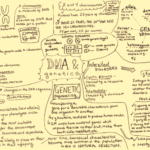Transitioning to GCSEs or A Levels?
With the school year now in full swing, many Year 10 and 12 students are struggling to come to terms with the differences and increased demands of a step up.
For Year 10, they need to cover a lot of material over a breadth of subjects, plus possibly playing catch up after a challenging school year.
Whilst we are concentrating more on the Year 12s in the article below, much of the study and organisational advice will apply to Year 10s, with a view to go on to A Levels.
So, what’s so hard about being a year 12 student? Despite studying fewer subjects, the subject content is significantly greater. It’s also much harder, requiring students to display new and enhanced exam and study skills. When combined with the need for students to work more independently and deal with greater demands on their time, it’s no surprise that so many students find the transition from GCSE to A Level challenging.
TOP 5 TIPS
To help students settle in more quickly and get the best exam results possible, our top 5 recommendations are:
- Be mentally prepared by acknowledging that year 10 and 12 is a big shift and being open to the changes that this shift will cause. In particular, it’s important to ask for help if needed and to seek help sooner rather than later. For example, don’t wait until revision time or homework deadline if having difficulty with a topic or question.
- Getting organised is crucial for successful transition. By using a diary/planner and getting into a good study routine, students can help make the most of their precious time and keep track of deadlines. Ensuring notes are complete and well organised will also make revision and homework easier and less time consuming.
- Revise throughout the year rather than just in the run up to exams. Revisiting information, by going through notes at the end of the week, helps ensure students have a good understanding of areas covered and helps embed information in their memory. Then, when it comes to more complex concepts and actual revision time, students will have a good foundation upon which to build, giving them more time for applying and testing their knowledge rather than just learning.
- Use ‘free periods’ wisely. For the first time, many students will have a significant amount of free time at school. Whilst tempting to chat with friends, free periods should be thought of as study time and planned ahead. Using a planner/diary to schedule subjects/tasks for each free period will help make the most of this time and mean there will be less to do when at home.
- Detailed curriculum and assessment objectives are available for every subject and are an invaluable tool for students as they set out exactly what and how they are going to be assessed. In addition to helping students tackle and answer questions effectively, they are also a really useful tool for tutors to explain what students need to improve upon.
How to approach revision
When it comes to revision techniques to achieve exam success, there are many different methods and approaches. However, education specialist Dr David Crouch advises: ‘Whatever revision method you use, make sure it works for you and don’t leave preparation until the very last minute.’
At Justin Craig, we have individually tailored courses designed specifically for the differing needs of students. With courses throughout the academic year, our students can spread out their revision, focusing on different subjects during the various school holidays.
To read a review by one of our recent Year 12 students, click here
Our courses are proving more popular than ever this year so please do enquire early if you are interested, either by phone 01727 744340 or email








 See More Genuine Reviews
See More Genuine Reviews